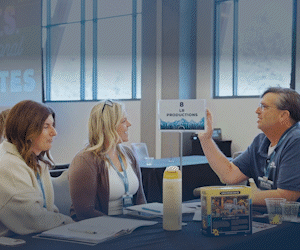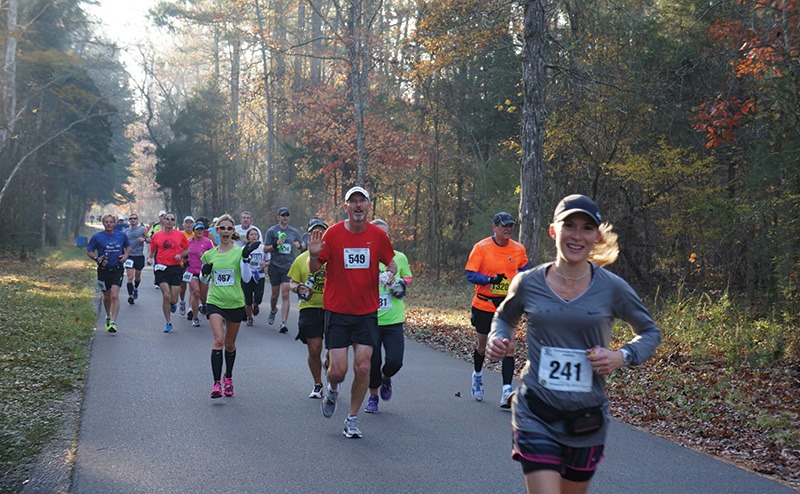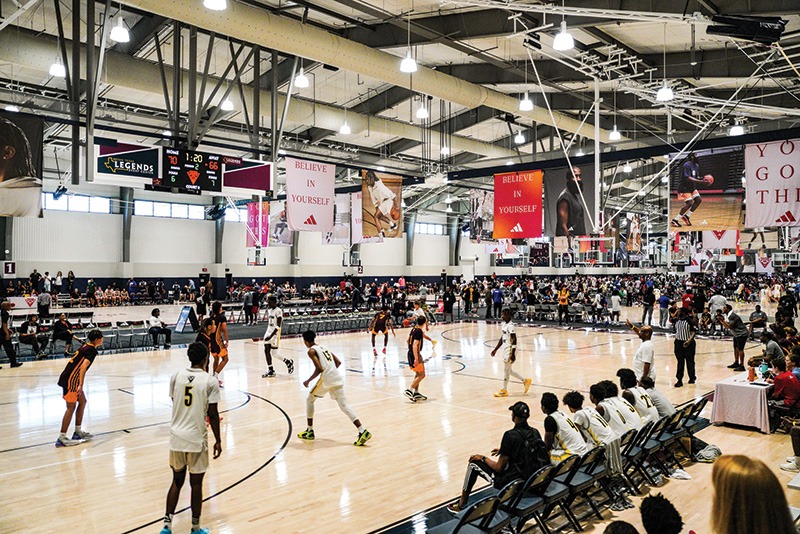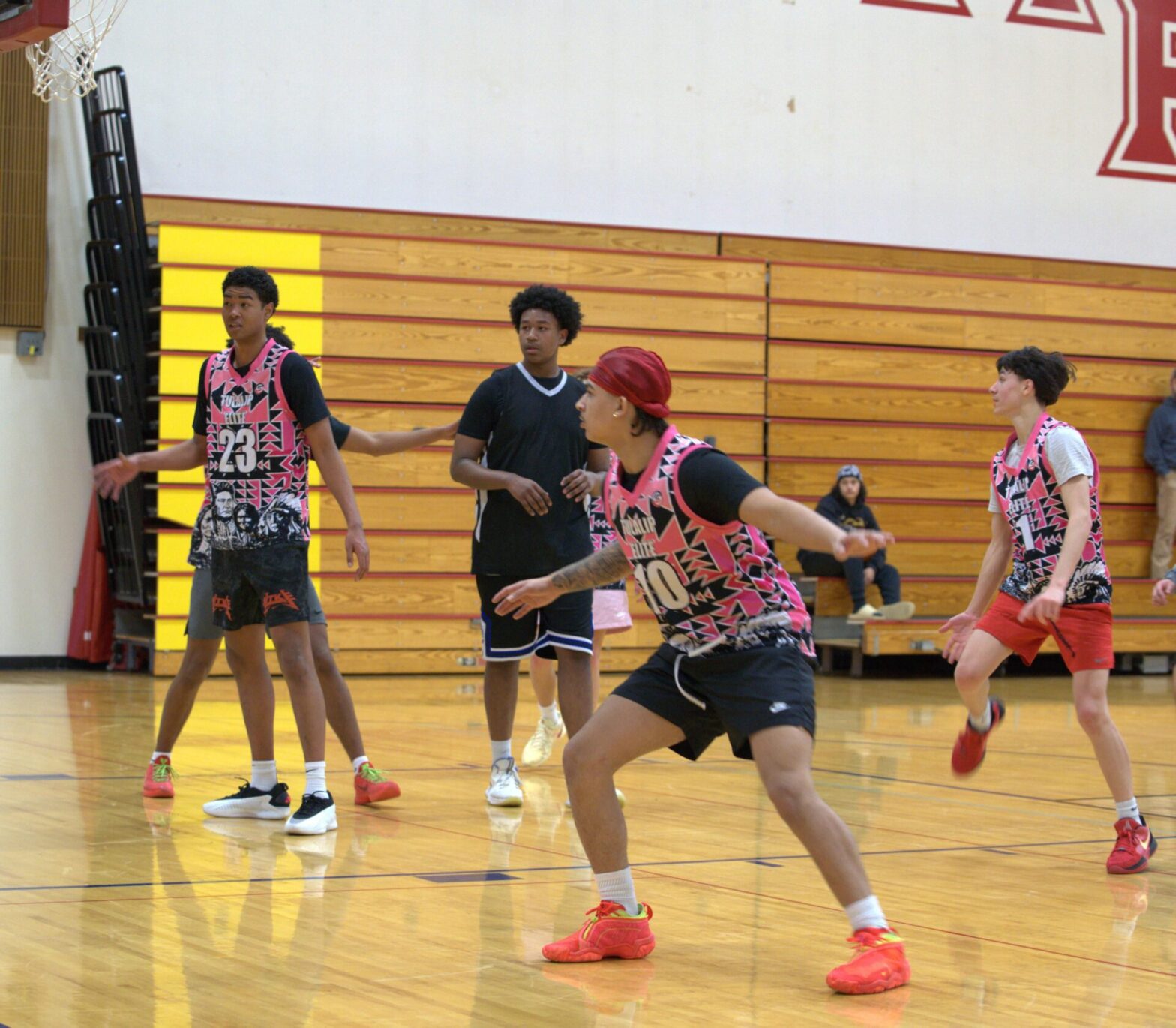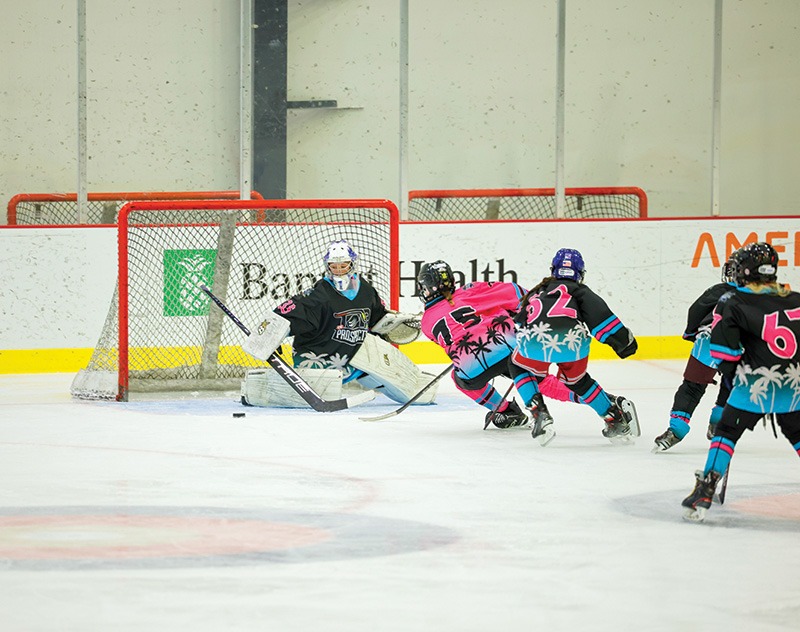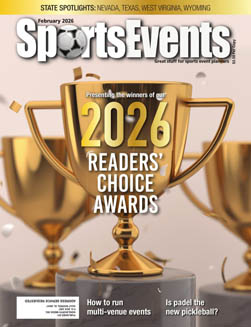
LakePoint Sports Complex is located in Emerson, Ga., which has a population of about 2,000. Yet, LakePoint serves more than 30 indoor and outdoor sports year-round, including baseball, basketball, volleyball, soccer, lacrosse, and gymnastics, and the complex and tiny community welcomes more than two million visitors annually for sports events.
When it comes to attracting and hosting big sporting events, smaller communities are proving they don’t have to sit on the sidelines.
Finding the right fit
Hosting regional, national, or international competitions is more likely to succeed when the event is a good match for the overall community, athletes, and sports organizations.
“It’s a true partnership when you attract these [events] and it has to work for both sides,” says Angie Jepsen, director of sports development for Visit Albuquerque in Albuquerque, N.Mex.
“It’s not forcing things that don’t make sense for our community [such as] when the venue is not quite right or financially it doesn’t fit within our goals,” she adds.
Albuquerque hosts such national sports as track and field championships, boxing qualifiers, BMX, taekwondo, archery, and gymnastics. Having appropriate facilities, available dates, and financial resources are some key considerations when hosting sports events, Jepsen says.
“It’s reviewing those requests for proposal to ensure we can do things to the level that we are accustomed to, and our clients are accustomed to,” she says.
The Raleigh-Durham region in North Carolina welcomes a gamut of national and international sports from table tennis to cricket to the first Olympic trials for rugby. Now, the region hosts a newer, smaller version called rugby sevens—named for the number of players—which is ideal for their community.
“There’s versions of sports that can be a good fit for small- to medium-size communities,” says Hill Carrow, chair and CEO of World University Games and CEO of Triangle Sports Commission in the Raleigh-Durham, N.C., area.
“Rugby sevens has gotten very popular. That’s a very manageable event,” Carrow says. “For the right event, a number of communities have proven already you can definitely be a significant player…Pick the right size event for your community where it can be a big deal but won’t break the bank.”
Another vital consideration is how sports will affect community stakeholders including local government, hotels, restaurants, and generally anyone who wants to see the community prosper. In 2021, sports tourism generated about $40 million and it’s growing at a faster pace than before the COVID-19 pandemic began. Beyond economic benefits, sports tourism needs to complement a host community’s overall quality of life.
Albuquerque hosts events such as USA Track and Field championships that are televised nationally, Jepsen says. The marketing value of events is important for attracting future sports and for the growth of the community of about 600,000.
“We host several basketball events and…we bring in out-of-town teams. We are providing our local youth an opportunity to play on our home field,” Jepsen says. “[We’re looking into] how we can bring in things that are exciting for our community to participate in. We keep our youth engaged so they can see there’s a lot out there for them to aspire to.”
Albuquerque sometimes uses University of New Mexico (UNM) facilities for sports that attract athletes nationwide, who might consider enrolling in UNM after competing there. First-time visitors may be surprised by the beautiful year-round weather, Jepsen said.
“Getting folks here for a sporting event, it’s important that stakeholders do understand some of those people might end up moving here, or athletes’ parents that traveled to watch them [might retire here],” she says. “It’s that lasting impact.”
Emphasize the community’s amenities

In smaller communities, shorter commutes to hotels, restaurants, airports, and sports venues are assets
for athletes and organizers of sports events, Carrow says.
“In a small to medium community, one of the natural advantages is the convenience of things,” he says. “If [athletes] can be within 20 or 30 minutes or quicker from where they’re housed and dining and the venue and the airport, that makes a big difference. That’s a big deal for [organizers of sports events]. You’ll even see it in requests for proposals. They ask about things like that.”
Sports organizers often choose locations where their event draws a lot of attention and local interest. When Raleigh-Durham hosted the U.S. Olympic Festival in the 1980s, the region set attendance records.
“It was our Super Bowl. It was easy to get the word out because we were not a giant city,” Carrow says. “Everybody wanted to be there.”
Close proximity to entertainment and local attractions is a boon, too. Only in Cartersville Bartow is the local convention and visitors bureau (CVB) that markets LakePoint Sports events and other attractions. Bartow County, Ga., includes many small towns such as Emerson, with a population of about 110,000.
“Why would you want to bring your family? When there’s downtime, what is there to do? We’re able to connect with folks that come to LakePoint,” says Steven Schumacher, president of Only in Cartersville Bartow.
Only in Cartersville Bartow incorporates its newly revised website and pre-sporting event emails that inform athletes and other visitors about the area. At LakePoint’s indoor facility, there’s a Community Corner with two monitors playing video content, and a huge touchscreen visitors can use to access Only in Cartersville Bartow’s website. There’s information about nearby attractions, such as four museums and Cartersville’s revitalized downtown with dozens of businesses and restaurants, Schumacher said.
Schumacher said Only in Cartersville Bartow also uses digital marketing to entice visitors headed to Cobb County, home to the Atlanta Braves, to detour to Cartersville Bartow.
“The focus, once they’re here for sporting events, is keeping them here to spend their money here…getting out to folks all there is to do, where to go with kids and showing folks [other attractions],” Schumacher says.
Hospitality and relationships

Friendliness and cooperative relationships count when welcoming hundreds or thousands of visitors for a sporting event.
The metropolitan Raleigh-Durham region, with a population near 1.8 million, will be the site of the World University Games in 2029. During two site visits, event representatives noted how friendly, warm, and welcoming everyone was, Carrow says.
“That’s the benefit of being in a medium-sized community. People are more outgoing and friendly,” he says. “That’s something those communities can bring to the table. They were welcoming and excited about visitors and that’s a big deal for many of these events.”
Jepsen says cultivating ongoing relationships is key to attracting sports year after year.
“In the sports world, we feel building those relationships with (sports organizations) is paramount,” she says. “Creating local partnerships is hugely important. We cannot do what we do without great partnerships with the University of New Mexico, and the parks and recreation folks.”
Cartersville Bartow has built a reputation as a sports-friendly community and is part of the Georgia Sports Council.
“It’s all of the Georgia destinations that have the ability to host sporting events. We get together and share ideas. If one location can’t accommodate an event, they’ll shoot them our way,” Schumacher says.
Carrow advises that communities collaborate and, in the case of international events, with other countries.
“A team effort might be able to get some events that might be larger than any one community could host, but it would benefit all the communities,” he says. “These days, with things getting more expensive, cooperative arrangements are where things are headed. Sharing the costs as well as the responsibilities for all that goes into successfully staging the event can be a very good way to go.”




